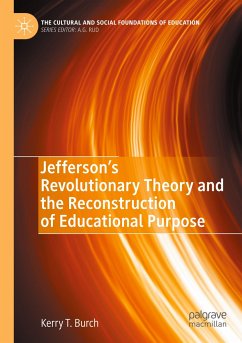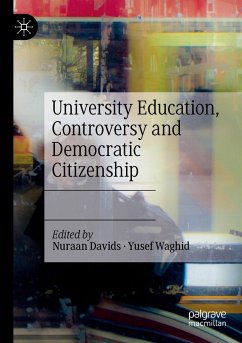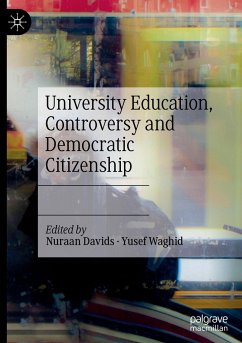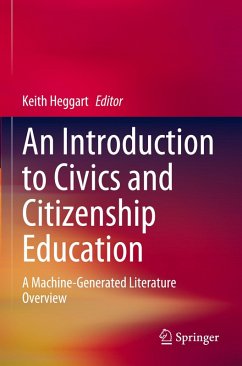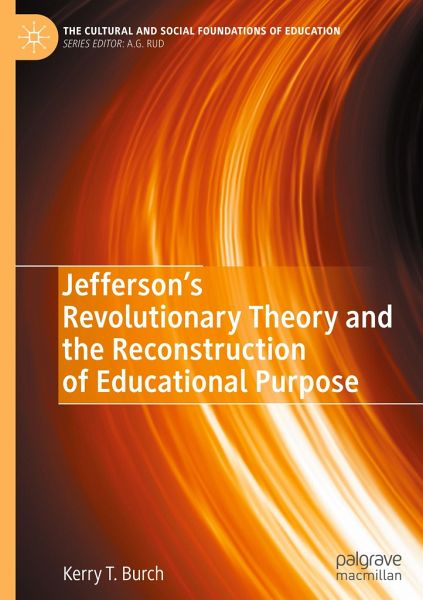
Jefferson's Revolutionary Theory and the Reconstruction of Educational Purpose
Versandkostenfrei!
Versandfertig in 6-10 Tagen
98,99 €
inkl. MwSt.
Weitere Ausgaben:

PAYBACK Punkte
49 °P sammeln!
This book newly interprets the educational implications of Thomas Jefferson's revolutionary thought. In an age where American democracy is imperilled and the civic purposes of schooling eviscerated, Burch turns to Jefferson to help bring to life the values and principles that must be recovered in order for Americans to transcend the narrow purposes of education prescribed by today's neoliberal paradigm. The author argues that critical engagement with the most radical dimensions of Jefferson's educational philosophy can establish a rational basis upon which to re-establish the civic purposes of...
This book newly interprets the educational implications of Thomas Jefferson's revolutionary thought. In an age where American democracy is imperilled and the civic purposes of schooling eviscerated, Burch turns to Jefferson to help bring to life the values and principles that must be recovered in order for Americans to transcend the narrow purposes of education prescribed by today's neoliberal paradigm. The author argues that critical engagement with the most radical dimensions of Jefferson's educational philosophy can establish a rational basis upon which to re-establish the civic purposes of public education. Bracketing the defining features of Jefferson's theory throughout each of the chapters, the author illuminates the deficiencies of the dominant educational paradigm, and charts a new path forward for its progressive renewal.





